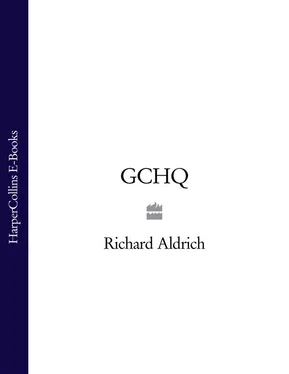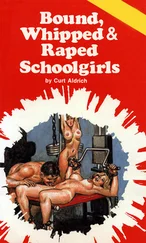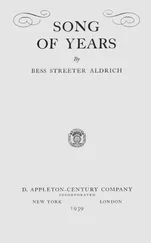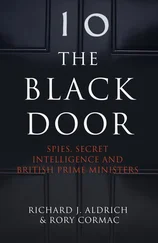However, the sharing of material on other parts of the world remained selective, reflecting the political tensions of the moment. In 1948, even while the UKUSA alliance was gradually being drawn together, Britain and America were at loggerheads over Palestine and the emerging state of Israel. There was anxiety in London about sharing intelligence on the Middle East with the Americans. On 15 February 1948, Britain’s Joint Intelligence Committee discussed the problem of circulating its own reports, which included material from SIS and GCHQ, to the newly formed CIA. Although British intelligence representatives in Washington were not aware of a specific ‘pro-Zionist bloc in the Central Intelligence Agency’, nevertheless they asserted that ‘Jewish sympathisers were no doubt included in its establishment’, and complained that there had been leaks. William Hayter, the Chair of the JIC, insisted that its material on Palestine should be shown in the first instance only to the Director of Central Intelligence in person. He added that ‘It should be explained to him that if he could not guarantee that they would not fall into pro-Zionist hands, then he could not be left with them.’ Even so, it was decided to withhold more sensitive recent reports on Palestine from the Americans. 32 Meanwhile, ‘Operation Gold’, run by US Navy intelligence, was intercepting the cable traffic of Jewish arms smugglers, but this was not being shared with Britain, or indeed acted upon. 33
American links with the Commonwealth parties were also hesitant. The Americans were slow to do business with the Canadians. They worried about how much GCHQ had told the Canadians about Anglo-American agreements, and suspected that GCHQ was secretly giving Ottawa some American sigint. 34 During the 1948 discussions of possible CAN-USA sigint agreements, it became clear that the US Communications Intelligence Board was anxious to prevent an information free-for-all. It preferred to hand material to the Canadians on a ‘need to know’ basis, and was anxious to prevent a proliferation of sigint liaison officers. 35 Meanwhile, somewhat foolishly, Canada resisted the all-important standardisation of security procedures that was a foundation stone of the BRUSA agreement, so negotiations were ‘very difficult’, dragging on until 1953. 36 The Americans were even more wary of sigint cooperation with the Australians due to the KGB spy cases uncovered by Venona in the late 1940s. This, in turn, retarded the joint sigint effort against the newly formed People’s Republic of China from 1949. In late 1953, the advent of a Liberal (i.e. conservative) government in Australia triggered a full resumption of cooperation, formalised at a tripartite sigint conference between the Americans, British and Australians. New Zealand also came in as fifth partner. It was only at this point that the name ‘UKUSA’ was adopted at GCHQ’s request. 37
The most prickly area of alliance relations was the business of cypher security, which protected the secrecy of diplomatic communications. Foolishly perhaps, at a meeting in London in May 1947, the British launched an audacious bid to persuade the Americans to share the innermost secrets on matters of their code-making. The discussion revolved around the replacement of the Combined Cypher Machine, which had been developed for inter-allied communications during the war, but was now thought obsolete and vulnerable. The British were also keen to replace their own national machine, the Typex, but were desperately short of money as a result of post-war austerity, and argued that for reasons of economy any new cypher machines should be capable of inter-allied use, and proposed joint research and development with the Americans. 38 The Americans were startled: it had been a cardinal principle never to share the secrets of their unique and highly prized Sigaba machine. Hoping to overcome this psychological barrier, the British revealed that they were in fact already knowledgeable about Sigaba. They not only described its inner workings ‘quite accurately’, but confessed that they had ‘incorporated its principles in a radioteletype machine for their own use’. Hoping that they had pushed the Sigaba obstacle aside, the British then made their pitch. They claimed that they had developed an approach to cypher machines that was ‘new and revolutionary’, and ‘superior to the Sigaba principle’. They were happy to share this with the Americans, and perhaps make use of it in joint machines that might be developed for both national and allied use.
Far from being reassured, the Americans were horrified. Discussion had to be ‘temporarily discontinued’ while they withdrew to confer amongst themselves. The US Army could see no objection to releasing the Sigaba principle for use in a combined allied machine, since the British had clearly unravelled it. However, the US Navy offered ‘serious objections’, and used their veto. Thus the British were told that Sigaba had to be completely eliminated from the discussions. At this point they revealed their ‘new and revolutionary idea’ for future cypher machines, only to find that their American colleagues sneered at it and dismissed it as ‘impractical’ on engineering grounds. The two sides parted without agreement. 39
While GCHQ was overawed by the scale of American sigint resources, matters looked quite different from Washington. With the Second World War now over, and an economising Republican Congress controlling the federal purse-strings, resources for American co mint interception activities were remarkably tight. This contributed to American under-preparedness prior to the Korean War. It also enforced a division of labour between GCHQ and the Americans, and prevented American sigint from expanding its activities in Europe in the way it had hoped. In 1949, US Army Security Agency interception units in Europe were still passing much of their product to GCHQ for analysis, rather than back to Washington. Moreover, GCHQ retained primary responsibility for areas such as Eastern Europe, the Near East and Africa. 40 Because of this division of labour, the late 1940s saw the gradual development of American and British spheres of influence. In Scandinavia, for example, relations with Norway were an American responsibility, while those with the Swedes belonged to GCHQ, although this demarcation was not always strictly adhered to. 41 GCHQ enjoyed the additional benefits of the panoply of bases provided by Britain’s imperial and post-imperial presence. Although the Empire was shrinking, the very process of retreat and the euphoria of independence often rendered the new successor states willing to grant limited base facilities to the departing British. These ‘communications relay facilities’ may have seemed innocuous, but in fact many countries were unwitting hosts to important GCHQ collection sites. 42
The outbreak of the Korean War early on the morning of Sunday, 25 June 1950 took Britain and the United States by complete surprise. Although they had comint units in locations such as Hong Kong and Japan, their main focus was Russian traffic, and their sigint capabilities against North Korea were non-existent. The NSA official history notes that there was ‘no person or group of persons working on the North Korean problem’, and even had they done so, they had ‘no Korean linguists, no Korean dictionaries and no typewriters’. Although the CIA had picked up what might be called ‘rumours of war’ from human agents, there was no high-profile attack warning delivered to policy-makers. During the first few weeks of the war, the Americans and their South Korean allies suffered serious reverses and were almost overrun. Sigint helped the Americans to beat back the attacks on their rapidly shrinking perimeter by providing excellent tactical intelligence, but they blundered again by missing the entry of the Chinese into the war in October 1950. 43
Читать дальше












